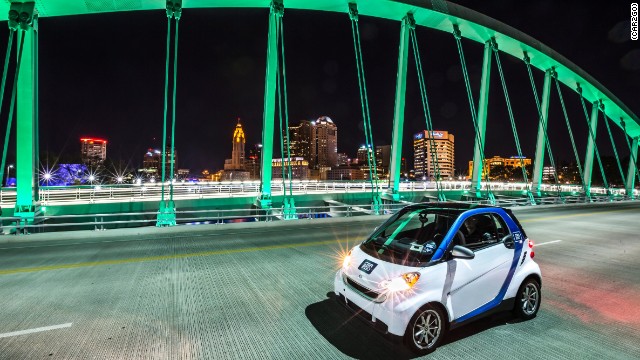
How car-sharing is already helping cities with their transit issues
There's a promising fix for any city with transportation issues -- and car ownership has nothing to do with it.
A new study found that cities that turn to a flexible type of car-sharing stand to benefit from less pollution, less traffic and more parking.
Researchers at the University of California-Berkeley's Transportation Sustainability Research Center focused on the impact of car2go, which is different from car services like Zipcar and GM's (GM) Maven. With car2go, drivers paying a one-time $35 membership fee and can rent a vehicle parked on a nearby public street and leave it elsewhere in the city. There's no need to reserve a vehicle ahead of time, or return it to a designated parking lot. Car2go strikes deals with local governments so that its cars can be parked in public spots.



